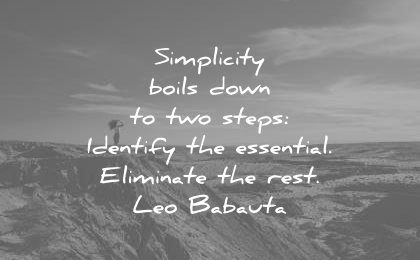
From the ‘want-it-all’ frenzy of the nineties and early 2000s, many are turning away from materialism to minimalism. The new buzz words are finding your ikagai, decluttering, the Mary Kondo way and following a minimalistic lifestyle is gaining popularity because more and more people are finding that acquiring and hoarding clothes, curios, cars and other small and big things cannot fill the emptiness within. The realisation is slowly dawning that having bigger houses or more goods will not give us peace and contentment.
Minimalism and yoga intersect at aparigraha. Aparigraha, as I understand it, means non-possessive, non-greedy or non-clasping. This is a key concept in reducing the interaction of the senses and their objects. This frees up the mind and purifies the chitta. Aparigraha comes from the root word Graha- to hold. To not hold is aparigraha.
What is interesting is, that which we hold, holds us. As vigilant practitioners we need to constantly question and observe ourselves. What am I holding on to? What is it that is binding me? One needs to examine what lacuna is being filled by these physical objects. Many of us unknowingly use food, objects, social media, incessant activities, games etc. to fill an emptiness within us. Our observation of ourselves should span from the gross to the subtle- physical objects, social interaction and mental fluctuations.
Physical objects are the easiest to examine and deal with. Am I an avid shopper? Is my closet bursting? Do I have so many things around that I need to make space for other stuff? Have I kept things “for anticipated future use?” Am I able to give away things that I no longer have use for?

Some ways to deal with physical clutter are-
1. Plan to give away one thing per day for at least 30 to 60 days
2. Give away unopened boxes stored for over a year without opening
3. Buy grocery/ household supplies only as much as is needed immediately
4. Ledges and store rooms are dangerous as are the backs of drawers. What cannot be seen will never be examined. Clean periodically.
5. Stop and examine the impulse to shop (online or at stores). What am I feeling? Will owning these things make me feel better?
The second is at the level of social interactions.
- Can we minimize our social interactions? Both online and real?
- Do we need to attend all the functions or parties that come our way?
- Can we pick and choose only a few?
- Do we need to read every message that we get on WhatsApp?
- Can we exit from groups that don’t serve a very specific purpose?
- Do we really need 400 friends on Facebook?
While humans are social beings and it is absolutely vital to have a good circle of friends, do we really need to be among people for so many hours? Are we doing this because we cannot be alone with ourselves? Having a rich social life lies in quality and not quantity. It means having reliable and loyal friends who are fun to be with and who can lift your mood up. Knowing they are there for you and spending quality time with them is a key component of your wellness. So, we have to learn to not exclude anyone yet choose our close friends wisely to minimize groups and activities.
I went through a phase of what was termed ‘spiritual shopping’. This is when I would run to every discourse, attend various spiritual courses, seek out Gurus and buy books by the dozen on spirituality. We are easily deluded into thinking that attending multiple spiritual lectures, camps are for our upliftment but we need to take a step back and analyse what we are really searching for. Of course, one needs to do some “shopping” before one can zone in on what suits one’s temperament and ideals. Once that is slightly clear, we are better off sticking to one path, one marga, one margadarshi and going deeper in that stream. Dabble in many but finally choose one path to make concentrated progress.
The third and most difficult of all is decluttering our minds. We hold on to so many thoughts, ideas, beliefs and judgements. Our mind refuses to let go of past slights, injuries, traumas. This loops over and over in our minds and creates an unhealthy space. We suffer the same sorrow a thousand times because we recreate the same situation again and again through our thoughts.
Can we harness enough strength to recognise that my thoughts are separate from myself?
If we can observe our thoughts and not get caught in them, we can become an impartial witness who is not affected by them. Much like throwing out unwanted stuff from our house, we can begin by purging our minds of past grudges held on tightly. We could refuse to think about what happened that day or that year. When the thought intrudes, firmly push it away and replace it with something in the present, busy oneself with some work so that our mind is where our hands are.
Minimalism and aparigraha create space within and without, bring greater clarity and consciousness. One becomes less greedy, less competitive and lives with more vigour and joy in the present. It frees up a lot of time to pursue more meaningful pleasures and learn to be with oneself. When we do not accumulate, we are rid of the fear of losing. Non-possessiveness allows us to trust the higher power and not rely on objects, people or our mind to be our support. We inch closer to our true selves.
Patanjali in his Yoga Sutra says that practicing aparigraha gives us knowledge of our past lives. What I take this to mean is, it brings clarity about the insignificance of these petty things that we hoard and cling on to. Birth after birth we have held onto things, relationships, wrongs and rights and depended on the world to give us our identity when in reality we are timeless beings. Can we give only that much importance to things, emotions, thoughts and experiences as they deserve and no more? Can we free up our houses, spaces and minds to be freer and more present? Can we all live more consciously?

The sage does not hoard. The more he does for others, the more he has. The more he thereby gives to others, the ever more he gets.”- The Tao
- Rupashree
YIC/YTT 2019 batch of YB